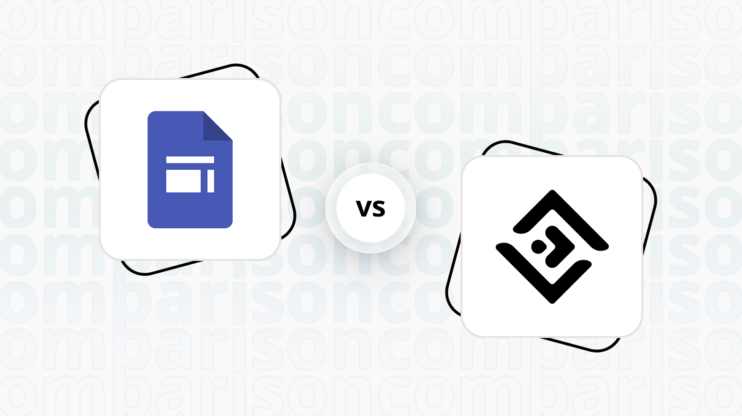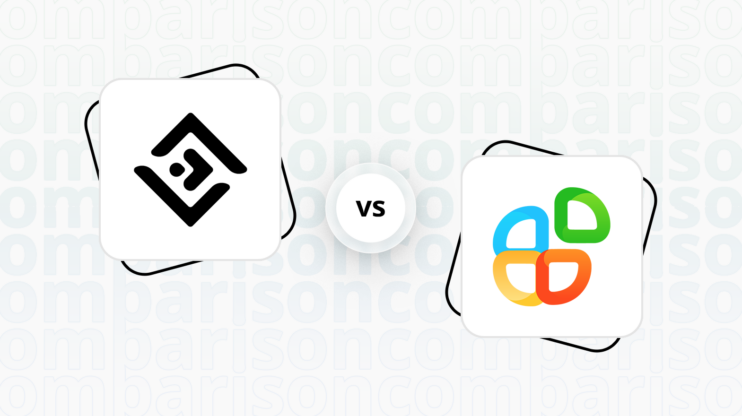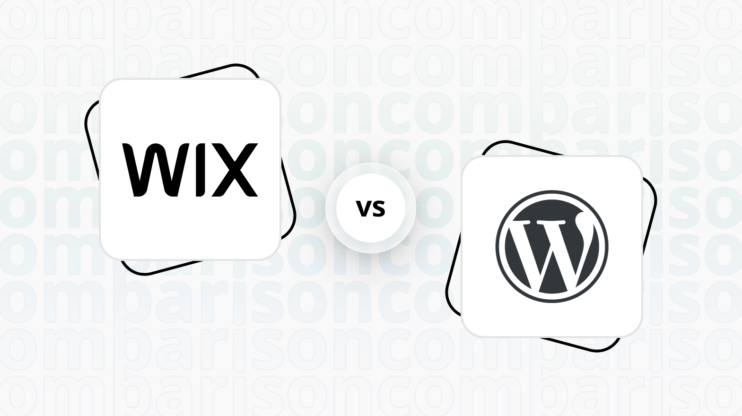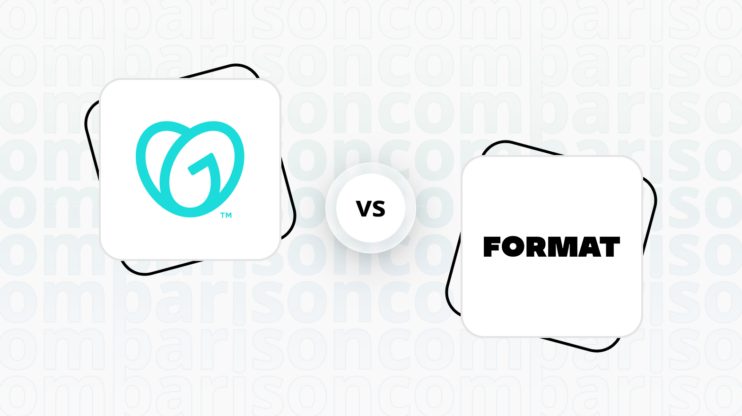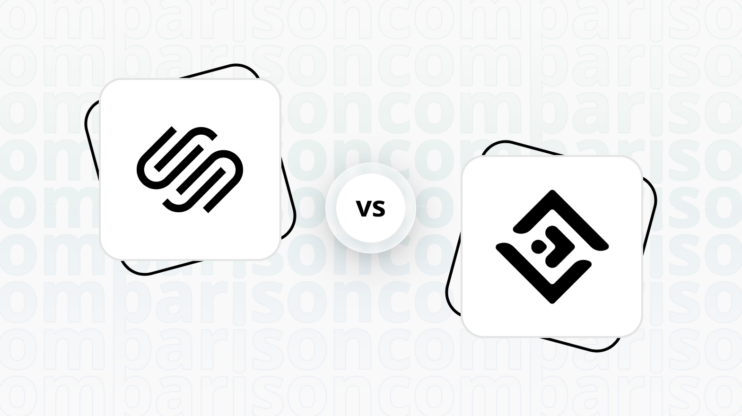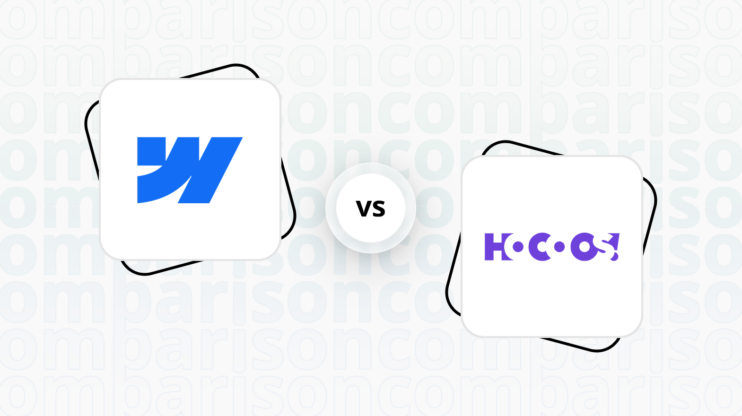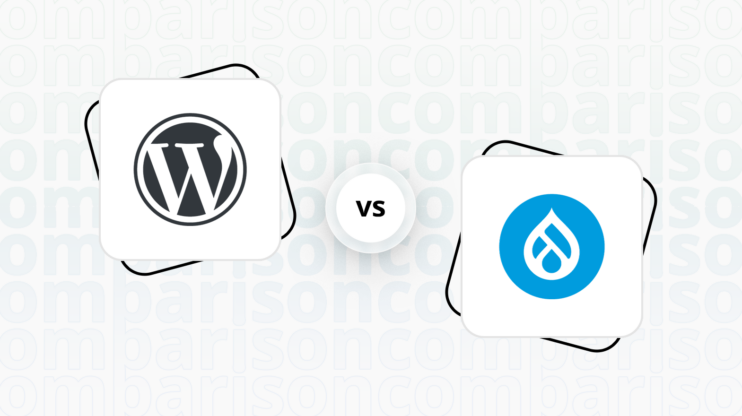Final verdict
Appy Pie and Google Sites cater to different needs and audiences, with Appy Pie emerging as the more versatile and feature-rich platform.
-
Google Sites (Overall Grade: 5.6/10)
is best suited for users deeply integrated into the Google ecosystem, looking for a simple, collaborative website-building tool. It shines in user management, security, and hosting quality, making it a reliable choice for basic websites, especially for educational or small team projects. However, it falls short in ecommerce, AI capabilities, and advanced marketing features. -
Appy Pie (Overall Grade: 7.2/10)
stands out for its ease of use, comprehensive ecommerce features, and innovative AI capabilities. It’s a robust choice for individuals and businesses aiming to quickly establish an online presence without coding knowledge. With superior customer support, marketing tools, and a wide range of templates, Appy Pie caters to a broader audience, including those looking to create more dynamic and interactive websites.

|

|
|
|---|---|---|
|
Design functionalities & templates |
4.9 |
6.8 |
|
Ease of use |
8.3 |
8.3 |
|
Ecommerce |
1.8 |
7.2 |
|
Website Editors |
7.0 |
7.7 |
|
Product testing options |
6.9 |
8.9 |
|
Price |
8.1 |
7.4 |
|
Hosting quality |
8.2 |
6.9 |
|
Website speed optimization |
3.3 |
5.0 |
|
Plugins and integrations |
6.4 |
6.4 |
|
Marketing features |
2.6 |
7.5 |
|
Customer support |
7.2 |
8.2 |
|
Security |
9.3 |
7.5 |
|
AI capabilities |
0 |
7.2 |
|
User Management |
7.8 |
7.3 |
| Overall |
5.6 |
7.2 |
Best for ecommerce
 1.8
1.8
 7.2
7.2
Verdict
: For users looking to build and manage an online store, Appy Pie is the clear winner over Google Sites, offering a comprehensive suite of ecommerce features.
-
Google Sites
: Lacks built-in ecommerce capabilities, relying instead on third-party integrations for any ecommerce functionality. It’s more suited for simple websites and not ideal for those looking to run an online store. -
Appy Pie
: Provides a robust platform for ecommerce with features like product and inventory management, shopping cart functionality, and multiple payment gateways. It’s designed for ease of use, making it a great choice for businesses of all sizes looking to sell online.
Best for informational & business websites
 7.2
7.2
 7.4
7.4
Verdict
: With closely matched capabilities, Appy Pie edges out slightly over Google Sites for informational and business websites, thanks to its slightly higher score and broader design options.
-
Google Sites
: Offers a straightforward, no-frills approach to website building, making it ideal for creating simple, collaborative informational sites. Its integration with Google Workspace tools enhances its appeal for users already embedded in the Google ecosystem. -
Appy Pie
: Stands out for its ease of use and a vast array of design templates, making it slightly more versatile for creating diverse informational and business websites. Its focus on no-code development and quick deployment aligns well with businesses looking for efficiency and simplicity.
Detailed comparison
Design functionalities & templates
Design FunctionalitiesRepresents how well each platform allows for creative design and customization of websites.Score Components:
- Template Variety (30%): Range and quality of design templates.
- Customization (30%): Flexibility and options for design alterations.
- User Interface (20%): Ease and intuitiveness of the design process.
- Responsiveness (10%): Adaptability to different devices and screen sizes.
- Innovation (10%): Unique design features and tools.
 4.9
4.9
 6.8
6.8
🏆
Winner: Appy Pie.
If you’re looking for a platform that offers more creative control, a wider array of design features, and a larger number of templates, Appy Pie is the preferred choice.
Google Sites offers a limited number of templates suitable for various purposes, from personal blogs to business websites, with both free and premium options available. These templates are designed for user engagement, simplicity, and functionality, allowing for customization to meet specific needs.
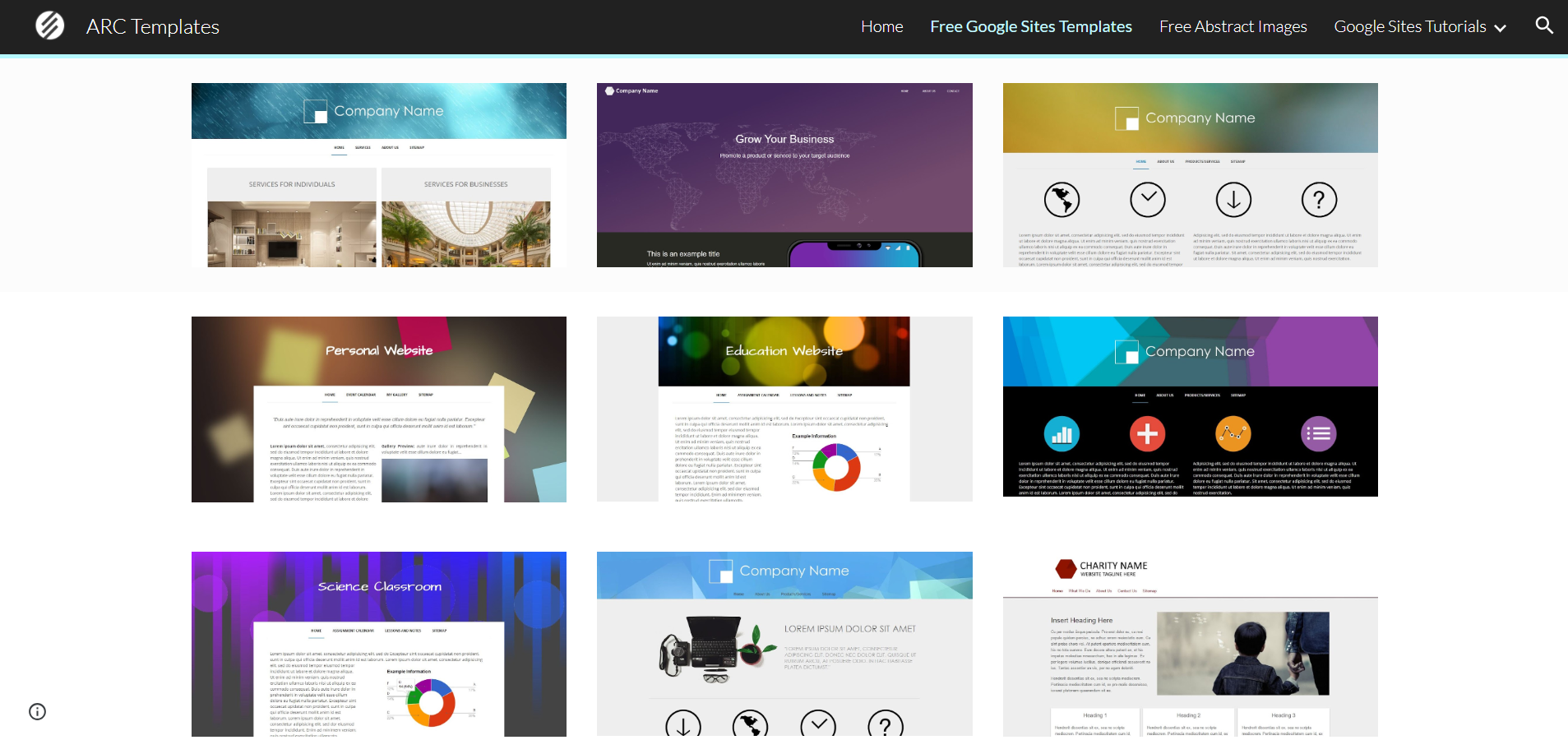
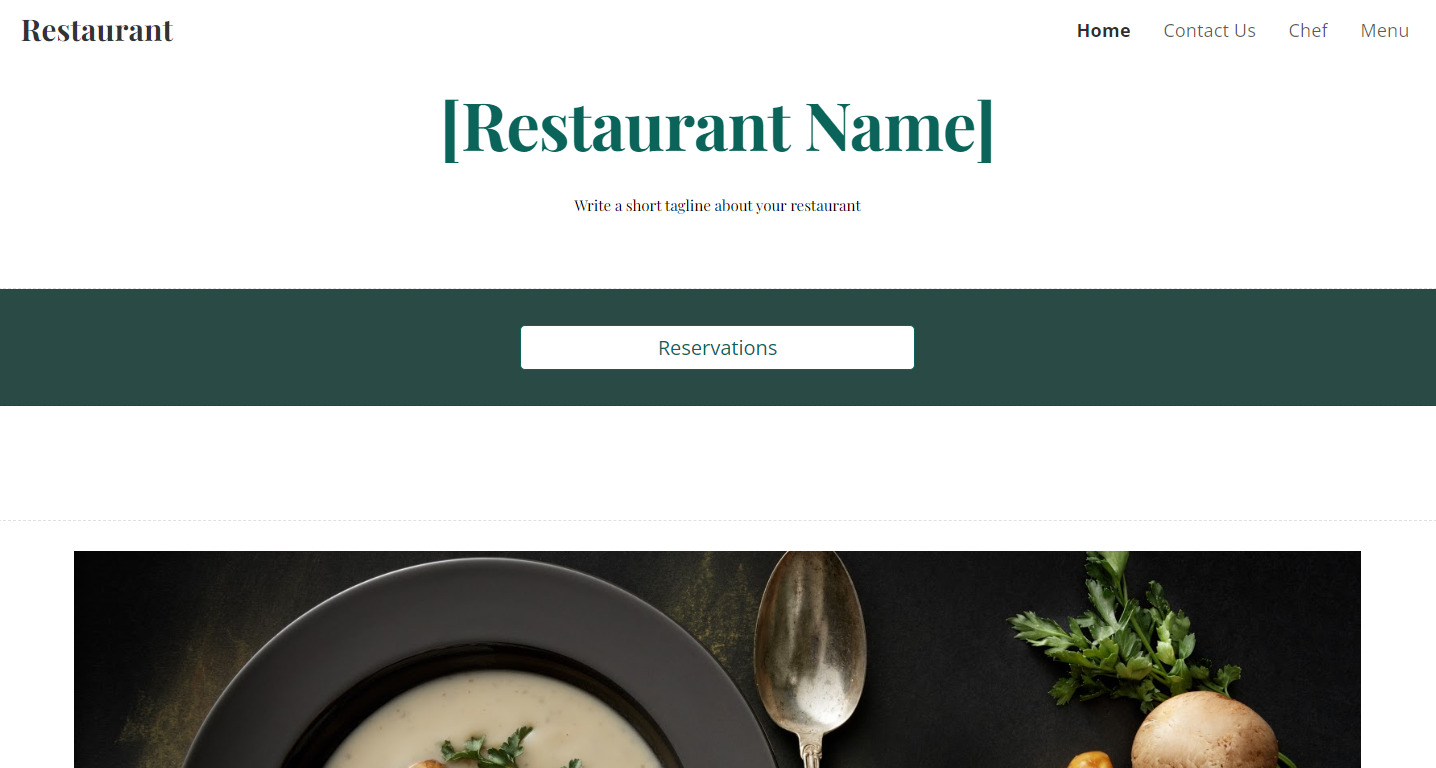
Compared to Google Sites, Appy Pie offers a wide array of website templates with over 10,000 options, catering to various needs and budgets. Categorized across industries, these templates are mobile-friendly and customizable, allowing users to edit colors, fonts, layouts, and add features.
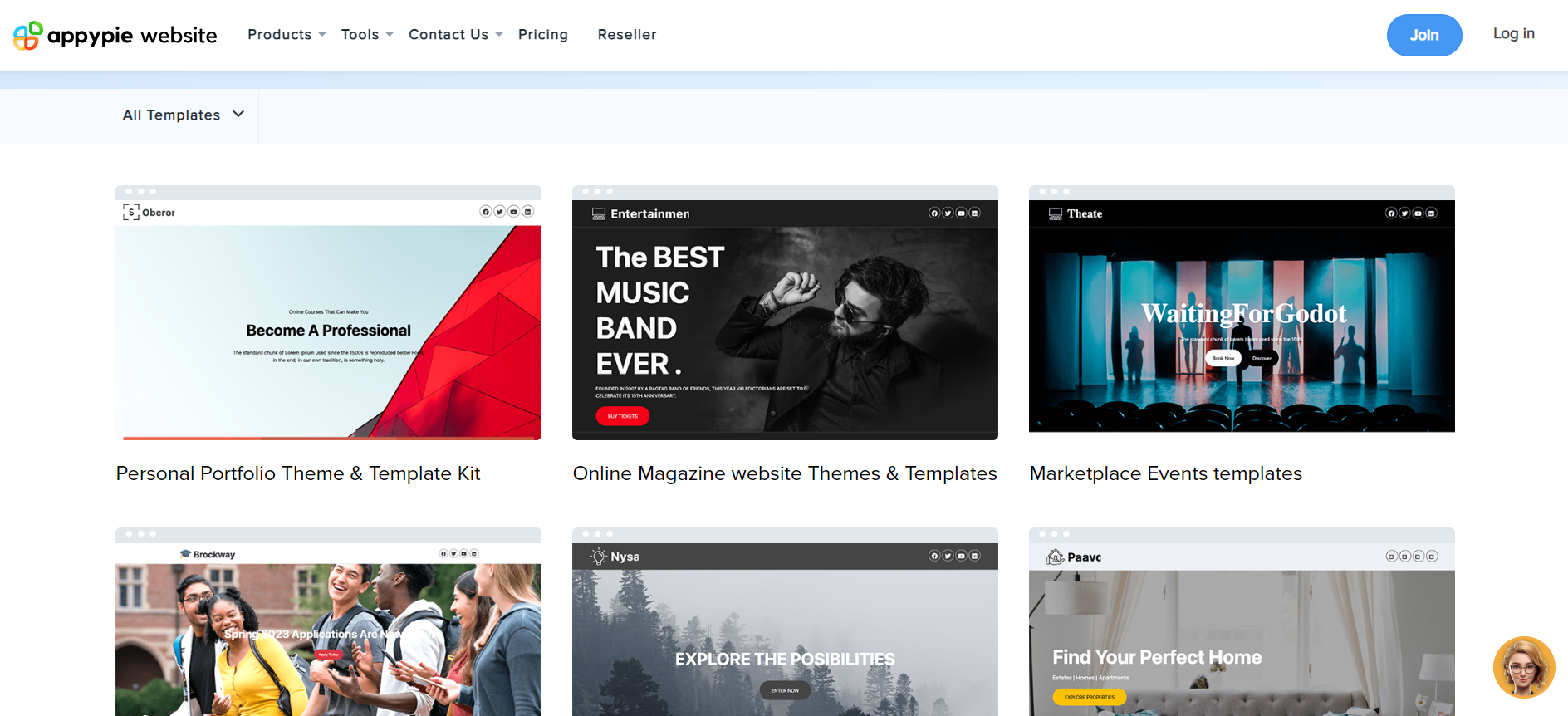

Get a head start on website creation with AI
Create a custom website tailored to your business needs 10X faster with 10Web AI Website Builder!
Ease of use
Ease of useReflects the platform’s overall user-friendliness.Score
Components:
- Learning curve (40%): Quickness and ease of getting started.
- Interface design (30%): Simplicity and intuitiveness of layout.
- User guidance (20%): Quality of tutorials and support.
- Flexibility (10%): Adaptability to various user skills.
 8.3
8.3
 8.3
8.3
🏆 Winner: Tie
. Both Google Sites and Appy Pie scored an 8.3 in ease of use. Google Sites offers a user-friendly interface that integrates seamlessly with other Google services, making it an efficient tool for creating basic websites. On the other hand, Appy Pie is known for its simplicity and intuitive design, making it highly accessible for users without coding skills.
Learning Resources
🏆 Winner: Google Sites
. Google Sites offers a wide array of learning resources, from practical guides for educators to comprehensive digital skill development programs. Appy Pie also provides learning resources, but they are not as extensive as Google Sites.
For ecommerce
EcommerceMeasures the platform’s effectiveness in supporting online business activities.Score Components:
- Ecommerce themes and templates (20%): Variety and design of templates.
- Product management (25%): Ease of managing and organizing products.
- Payment options (25%): Variety and convenience of payment methods.
- Ecommerce features (20%): Features for managing an ecommerce store.
- Integration (10%): Compatibility with external e-commerce tools and services.
 1.8
1.8
 7.2
7.2
When it comes to ecommerce, Appy Pie clearly outshines Google Sites. Google Sites does not have built-in ecommerce features and relies heavily on third-party integrations for any ecommerce functionality. On the other hand, Appy Pie provides a comprehensive set of ecommerce features, making it a more suitable choice for building and managing online stores.

|

|
|
|---|---|---|
|
Ecommerce themes and templates |
0.0 |
6.0 |
|
Product page customization |
0.0 |
7.0 |
|
Payment processing and commissions |
1.0 |
6.5 |
|
POS capabilities |
0.0 |
6.0 |
|
Payment gateways |
2.0 |
7.5 |
|
Product numbers |
0.0 |
6.5 |
|
Additional ecommerce features |
0.5 |
7.0 |
Google Sites ecommerce features:
Google Sites itself does not have built-in eCommerce features. However, you can integrate eCommerce functionalities into a Google Sites website by embedding third-party tools or widgets, linking to an external eCommerce platform, or using buttons that link to payment processors. For instance, you could use Google Forms for order forms and integrate PayPal or another payment service for transactions. To have a full-fledged eCommerce platform with Google Sites, you’d need to rely on these external integrations or services.
Appy Pie ecommerce features:
- Product and Inventory Management
- Shopping Cart
- Multiple Currencies
- Promotions and Discounts
- Order Management
- Shipping Options
- Analytics
- Tax management
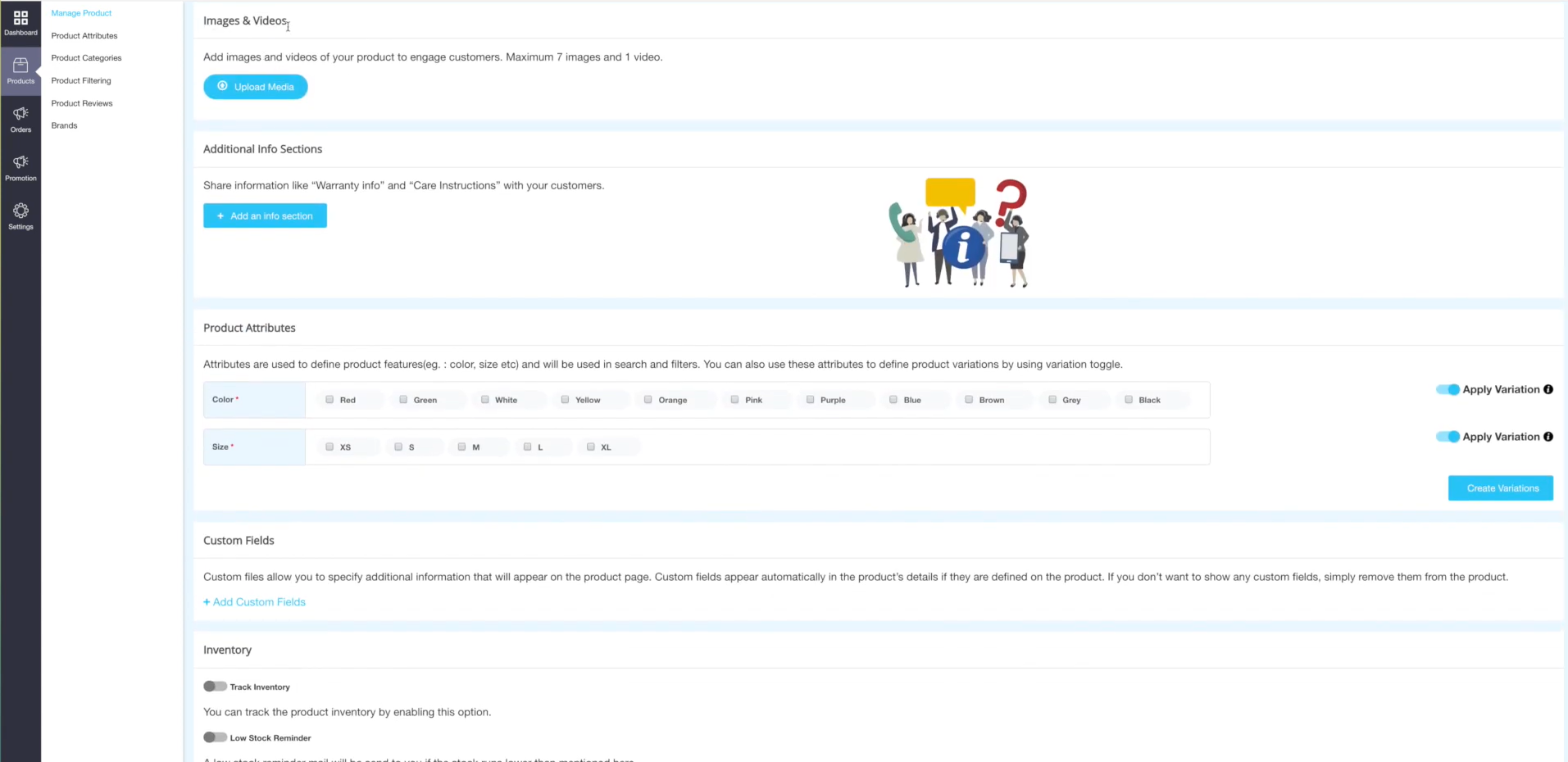
Ecommerce themes & templates
Google Sites does not offer any ecommerce templates. On the other hand, Appy Pie offers a small selection of ecommerce website templates. These templates are designed to help users create online stores quickly and efficiently, without the need for coding skills. Appy Pie’s ecommerce templates feature mobile-first designs, customizable product galleries, and various other features aimed at enhancing the online shopping experience for both the store owner and their customers.
Product page customization
Google Sites lacks any product page customization features, as the products can be listed with embedding third-party platforms, all the customization can be done within the mentioned platforms. In contrast, Appy Pie’s Website Builder provides users with extensive customization options for product pages, enabling the creation of unique online stores or product showcases without requiring advanced coding skills. Users can personalize product details like descriptions, images, and pricing, ensuring they can offer comprehensive information to assist customers in making informed purchasing choices.
Payment processing
You can integrate payment gateways into Google Sites using external tools or links, not through native features. This can be done by embedding HTML code for payment buttons from services like PayPal, Square, or Stripe, or by linking to an external checkout page. Third-party eCommerce widgets also offer a way to add payment functionalities. However, Google Sites doesn’t offer the comprehensive eCommerce capabilities that dedicated platforms provide.
On the other hand, Appy Pie offers a user-friendly platform for integrating payment processing and POS capabilities into mobile apps and online stores, supporting multiple payment gateways like PayPal, Stripe, and Square for secure and versatile customer transactions. While it facilitates easy payment integrations, commission management may require third-party solutions or custom setups. This makes Appy Pie an effective tool for businesses looking to provide a comprehensive shopping experience with a focus on mobility and flexibility.
Website Editors
Website EditorsEvaluates the platforms’ website building and editing capabilities.Score Components:
- Customization tools (40%): Range and power of editing features.
- Editor usability (30%): User experience within the editor.
- Design flexibility (20%): Freedom in layout and design changes.
- Update and maintenance ease (10%): Simplicity of updating and maintaining the site.
 7.0
7.0
 7.7
7.7
🏆
Winner: Appy Pie
. Appy Pie, with a score of 7.7, offers a user-friendly, cloud-based platform that allows individuals, professionals, and small businesses to create mobile-friendly websites without needing to code. It offers a drag-and-drop interface, customizable templates, and various features like social media integration, ecommerce capabilities, and SEO tools. This makes it an ideal solution for quickly creating a wide range of websites, from landing pages to online stores, tailored to users’ specific needs and brand identities.
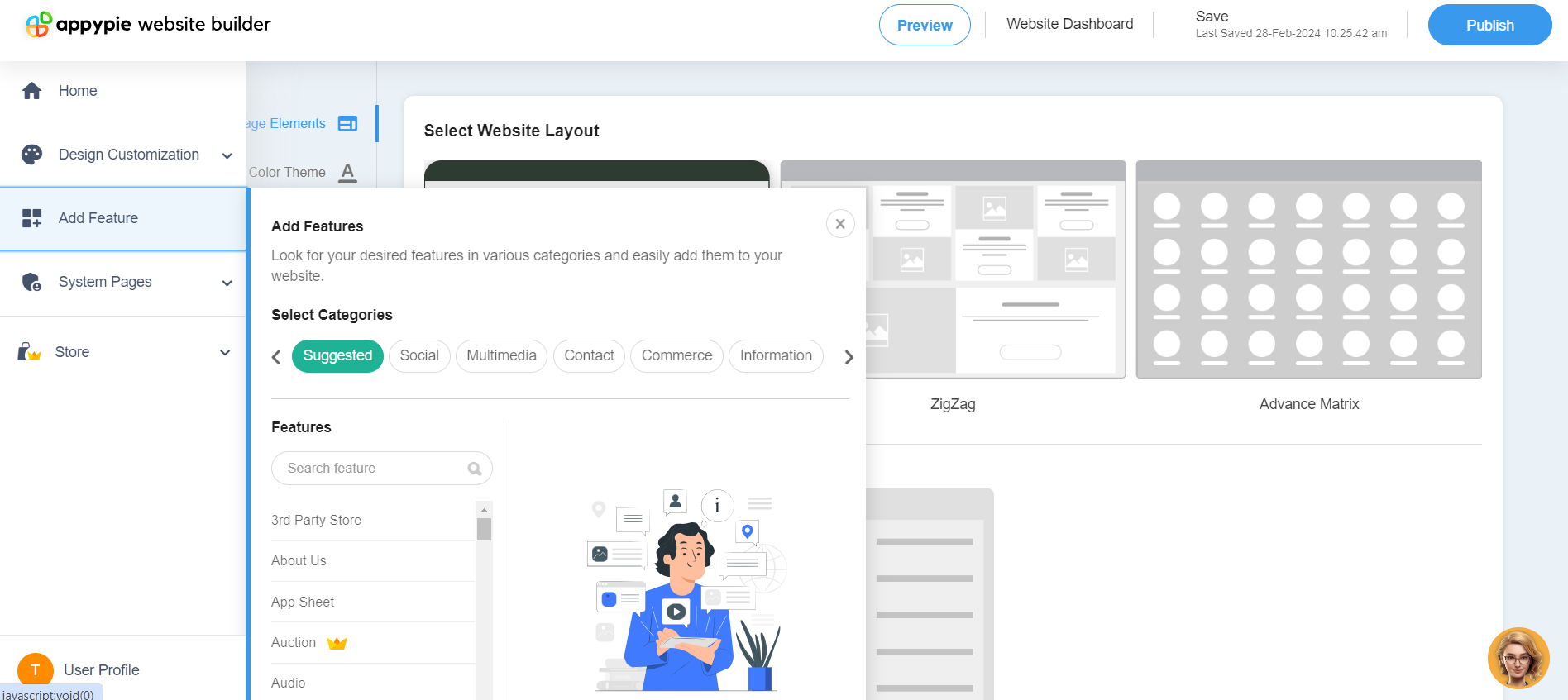
Google Sites’ editor, scoring 7.0, offers a user-friendly website builder editor that allows users to create and design websites without needing coding knowledge. With its drag-and-drop interface, users can easily add, customize, and arrange elements such as text, images, and videos on their web pages. It also provides a variety of templates and design options to help users get started quickly and ensure their site looks professional. Additionally, Google Sites integrates seamlessly with other Google services, enabling the incorporation of Google Docs, Sheets, Slides, and Maps directly into the website.
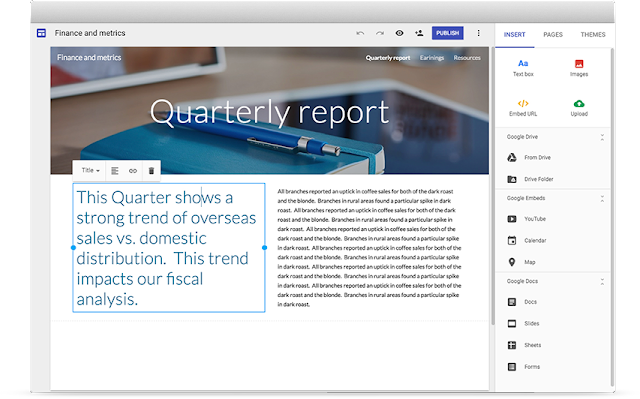
Mobile editor/app
 0
0
 5.5
5.5
🏆
Winner: Appy Pie
. Neither Google Sites nor Appy Pie offer a dedicated mobile editor app. However, Appy Pie has an advantage as it allows users to edit their websites using a mobile browser. This feature provides flexibility for users who need to make quick changes on the go. On the other hand, Google Sites does not support mobile editing, which can be a significant limitation for users who prefer to manage their websites from mobile devices.
Product testing options
Product Testing OptionsAssesses the options for trying out platform features before commitment.Score Components:
- Trial quality (40%): Extent and usefulness of the trial or free version.
- Feature accessibility (30%): How many features are available to test.
- Trial duration (20%): Length of the trial period.
- Ease of transition (10%): Smoothness of moving from trial to paid plans.
 6.9
6.9
 8.9
8.9
Overall Result
:
Appy Pie Wins
. Appy Pie scores 8.9 in product testing options, significantly higher than Google Sites’ 6.9. Appy Pie offers a 30-day free trial, during which all premium features can be tested. Google Sites, on the other hand, offers a 14-day free trial with the possibility to test some premium features. Neither of the platforms offers a money-back guarantee.

|

|
|
|---|---|---|
|
Free Plan |
Yes | No |
|
Trial Duration |
14 days |
30 days |
|
Testing Premium Features |
Some features during free trial |
All features during free trial |
|
Money Back Guarantee |
No | No |
Price
PriceLooks at the cost-effectiveness and value for money of each platform.Score Components:
- Plan value (40%): What each pricing tier offers.
- Transparency and clarity (30%): Clearness of pricing structures.
- Flexibility of plans (20%): Range of options to suit different budgets.
- Hidden costs (10%): Additional expenses not included in the plan.
 8.1
8.1
 7.4
7.4
Google Sites and Appy Pie both offer competitive pricing, but Google Sites provides more comprehensive features, especially for larger businesses and enterprises.

|

|
|
|---|---|---|
|
$0-$10 |
Business Starter ($7.20/month): This plan includes basic features suitable for individuals or small businesses, offering professional email through Gmail, 30GB of storage per user, and video meetings for up to 100 participants. It allows to manage 1 website and there is no limitation on number of pages. Value for price: 6.0 |
No offering at this amount. |
|
$10-$15 |
Business Standard ($14.40/month): Suitable for growing businesses, this plan provides 2 TB of storage per user, video meeting capacity for up to 150 participants with recording features, and access to smart booking pages and shared drives. It allows to manage 1 website and there is no limitation on number of pages. Value for price: 7.5 |
No offering at this amount. |
|
$15-$25 |
Business Plus ($21.60/month): Designed for larger businesses needing more robust capabilities, offering 5 TB of storage per user, advanced security options, and video meetings for up to 500 participants. It allows to manage 1 website and there is no limitation on number of pages. Value for price: 8.5 |
Start ($18/month): Suitable for personal projects, offering 50 GB storage and access to professional theme templates, domain connection, no Appy Pie ads, CSS & Java customization, etc. Value for price: 6.5 |
|
$30+ |
No offering at this amount. |
Grow ($36/month): Aimed at small businesses, providing unlimited storage, advanced marketing and monetizing tools, multiple payment gateways, etc. Value for price: 8.5 |
location. As a result in rare cases the prices displayed here can differ from the ones you see on their
websites.
Hosting quality
Hosting
qualityExamines the reliability and performance of the hosting solutions.Score Components:
- Uptime (40%): Consistency and reliability of website availability.
- Speed (30%): Loading times and performance.
- Bandwidth and storage (20%): Sufficiency of resources provided.
- Data centers (10%): Quality and distribution of hosting infrastructure.
 8.2
8.2
 6.9
6.9
Winner: Google Sites
. Google Sites offers cloud-based managed hosting with a 99.9% uptime guarantee and operates 21 data centers globally. Appy Pie, on the other hand, offers a proprietary hosting service with a 99% uptime guarantee and relies on Amazon Web Services for its data centers. Google Sites’ higher uptime guarantee and more extensive network of data centers give it the edge in this category.

|

|
|
|---|---|---|
|
Do they offer hosting? |
Yes, basic storage with 100MB free per site, can be increased by upgrading to Google Workspace |
Yes, plans with storage options ranging from 50GB to unlimited, includes unlimited bandwidth |
|
Data Centers: |
Google operates a total of 21 data centers across the globe: 2 in Asia, 5 in Europe, 13 in US and 1 in South America |
Appy Pie relies on Amazon Web Services (AWS) |
|
Type of hosting: |
Cloud based managed hosting |
Proprietary hosting service |
|
Uptime: |
99.9% |
99% |
|
Uptime Guarantee: |
Yes, 99.9% |
Yes, 99% |
Website Speed Optimization
Website Speed OptimizationEvaluates optimization of website loading timesScore Components:
- PageSpeed Score (30%): Google’s score indicating performance optimization.
- Loading Time (30%): The average time until a website is fully interactive.
- Mobile Optimization (15%): Optimization effectiveness for mobile devices.
- Resource Optimization (15%): Optimizing images, scripts, and other heavy resources.
- CDN Usage (10%): Use of CDN to enhance speed across geolocations.
 3.3
3.3
 5.0
5.0
🏆 Winner: Google Sites
Both Google Sites and Appy Pie prioritize website performance and page speed, but Google Sites takes the lead with its automated optimization, CDN, mobile optimization, browser caching, and code minification strategies.

|

|
|
|---|---|---|
|
Focus |
Automated Optimization, CDN, Mobile Optimization, Browser Caching, Code Minification, Use of AMP |
No specific strategies disclosed |
|
Performance Tools |
Google Lighthouse, PageSpeed Insights |
No specific tools disclosed |
|
Key Strategies |
Automated Optimization, CDN, Mobile Optimization, Browser Caching, Code Minification, Use of AMP |
No specific strategies disclosed |
|
Load Times |
Not disclosed |
Varies widely, depending on the optimization and user’s location |
|
Page Speed Scores Range |
Not disclosed |
Varies widely, depending on the optimization and user’s location |
|
Core Web Vitals Improvement |
Emphasis on LCP, FID, CLS improvements |
No information disclosed |
Google Sites, as part of the Google Workspace package, places a strong emphasis on website performance and page speed. It uses automated optimization, CDN, mobile optimization, browser caching, and code minification strategies to enhance site speed. Google Sites also utilizes Google AMP for faster mobile page loads. However, Google does not disclose specific statistics about website Page Speed scores or load times.
On the other hand, Appy Pie, as a website building platform, doesn’t directly implement specific speed optimization strategies for your website. They offer various tools and features that can help you optimize your website’s speed on your own. Both load times and Page speed scores vary widely, depending on the optimization and user’s location. Appy Pie does not disclose any information on their Core Web Vitals improvements.
Get a head start on website creation with AI
Create a custom website tailored to your business needs 10X faster with 10Web AI Website Builder!
Plugins and integrations
Plugins and integrationsMeasures the range and effectiveness of additional plugins and integrations.Score Components:
- Variety of options (40%): Range of available add-ons.
- Integration smoothness (30%): Ease of integrating plugins into the site.
- Quality of plugins (20%): Functionality and reliability of the options.
- Custom integration capabilities (10%): Support for custom or third-party integrations.
 6.4
6.4
 6.4
6.4
🏆 Winner: It’s a tie.
Both Google Sites and Appy Pie score 6.4 in plugins and integrations. Google Sites offers a wide array of plugins and extensions to enhance website functionality, catering to various needs such as social media integration, e-commerce, chats, forms, video, audio, and more. On the other hand, Appy Pie provides a range of plugins and extensions for website enhancement, with the availability differing across plans. While the free plan offers basic features like contact forms and social media icons, paid plans grant access to the Appy Pie marketplace, which includes over 100 plugins across categories such as marketing, design, social media, SEO, analytics, payments, and more.

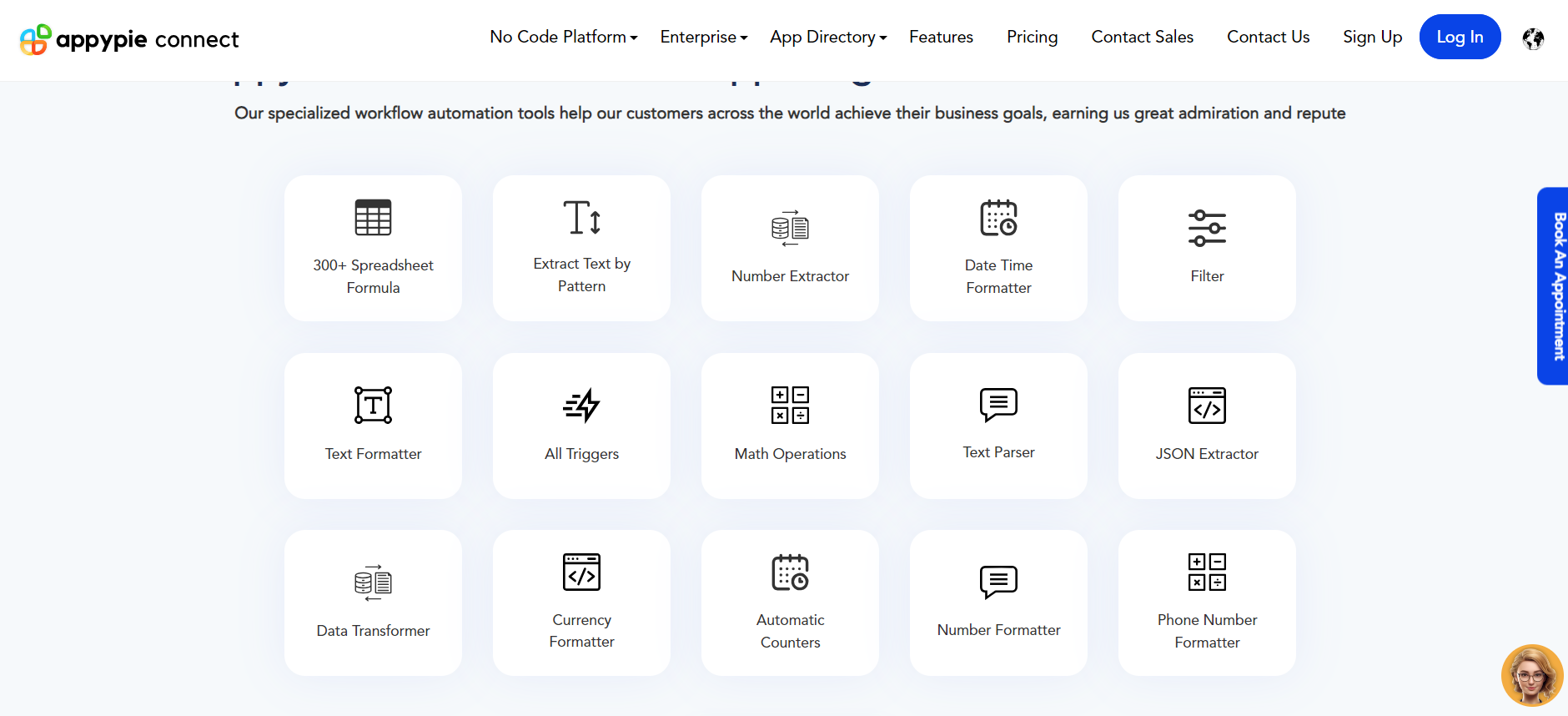
Marketing Features
Marketing featuresAssesses tools and options available for marketing.Score Components:
- SEO tools (40%): Effectiveness of SEO features.
- Marketing automation (30%): Availability and quality of marketing tools.
- Social Media integration (20%): Ease and depth of social media connectivity.
- Email marketing (10%): Quality and usability of email marketing tools.
 2.6
2.6
 7.5
7.5
🏆
Overall Winner: Appy Pie
. Appy Pie stands out for its comprehensive marketing tools, especially in email marketing, blogging, and ad campaign management. Google Sites, while offering basic SEO and analytics features, lacks in email marketing, blogging, and ad campaign management.

|

|
|
|---|---|---|
|
SEO Tools |
Basic SEO settings | Comprehensive SEO tools |
|
Email Marketing |
No | Yes |
|
Blogging |
No | Yes |
|
Social Media Integration |
Basic social media integration | Advanced social media integration |
|
Analytics and Reporting |
Google Analytics integration | Comprehensive analytics and reporting |
|
Ads and Promotions |
No | Yes |
Customer Support
Customer supportEvaluates the quality and availability of support options.Score Components:
- Response time (40%): Speed of support responses.
- Support quality (30%): Effectiveness and helpfulness of the support.
- Availability (20%): Range of support channels (phone, chat, email).
- Resource richness (10%): Quality of self-help and educational materials.
 7.2
7.2
 8.2
8.2
🏆 Winner: Appy Pie
. With a customer support score of 8.2, Appy Pie outperforms Google Sites, which has a score of 7.2. Appy Pie offers 24/7 customer support through various channels including live chat, email, and phone. They also provide extensive documentation and tutorials on their website to help users troubleshoot common problems on their own.
Google Sites, on the other hand, offers customer support primarily through self-service resources like a Help Center and community forums. Direct support, including phone, email, and live chat, is available to Google Workspace customers, with the level of support varying by subscription tier. Google Workspace provides 24/7 support for critical issues to eligible customers, with support availability and response times depending on the user’s specific plan.
Security
SecurityLooks at the platforms’ security measures and data protection.Score Components:
- Data protection (40%): Safeguards for user and customer data.
- SSL and encryption (30%): Implementation of secure connections.
- Compliance (20%): Adherence to industry security standards.
- Regular updates (10%): Frequency of security updates and patches.
 9.3
9.3
 7.5
7.5
🏆
Winner: Google Sites
. Google Sites, part of the Google Workspace, offers robust security measures including data encryption in transit and at rest, strict access controls with two-factor authentication, and adherence to international data protection regulations like GDPR. It also provides customized security settings, such as data loss prevention and advanced threat protection, to safeguard against unauthorized access and cyber threats. Google’s infrastructure offers DDoS protection and data redundancy, safeguarding against data loss and maintaining site accessibility under heavy traffic.
Appy Pie, while offering secure private data storage and protection with advanced encryption and strict access controls, does not match the comprehensive security measures provided by Google Sites. However, it does ensure website security through SSL encryption, regular security audits, secure hosting, two-factor authentication, and password protection for user accounts. It also has a dedicated team that monitors and responds to any security threats or breaches.
AI Capabilities
AI capabilitiesMeasures the effectiveness of AI-driven features and tools.Score Components:
- Automation efficiency (40%): Impact of AI on streamlining processes.
- Personalization (30%): AI-driven customization for users or customers.
- AI-Assisted design (20%): Role of AI in website design and functionality.
- Data analysis (10%): Use of AI in interpreting user data and analytics.
 0
0
 7.2
7.2

|

|
|
|---|---|---|
|
AI Website Builder |
|
Appy Pie offers an AI website builder for easy website creation |
|
AI Ecommerce Features |
|
AI-driven personalized shopping experiences and customer service |
|
AI Content Generation |
|
AI algorithms for generating high-quality content |
|
Additional AI Features |
|
Chatbots, virtual assistants, and AI-powered analytics |
🏆 Winner: Appy Pie
. Appy Pie, with a score of 7.2, offers a range of AI capabilities including an AI website builder, AI ecommerce features, AI content generation, and additional AI features such as chatbots, virtual assistants, and AI-powered analytics. These features make website creation, content generation, and customer interaction efficient and personalized.
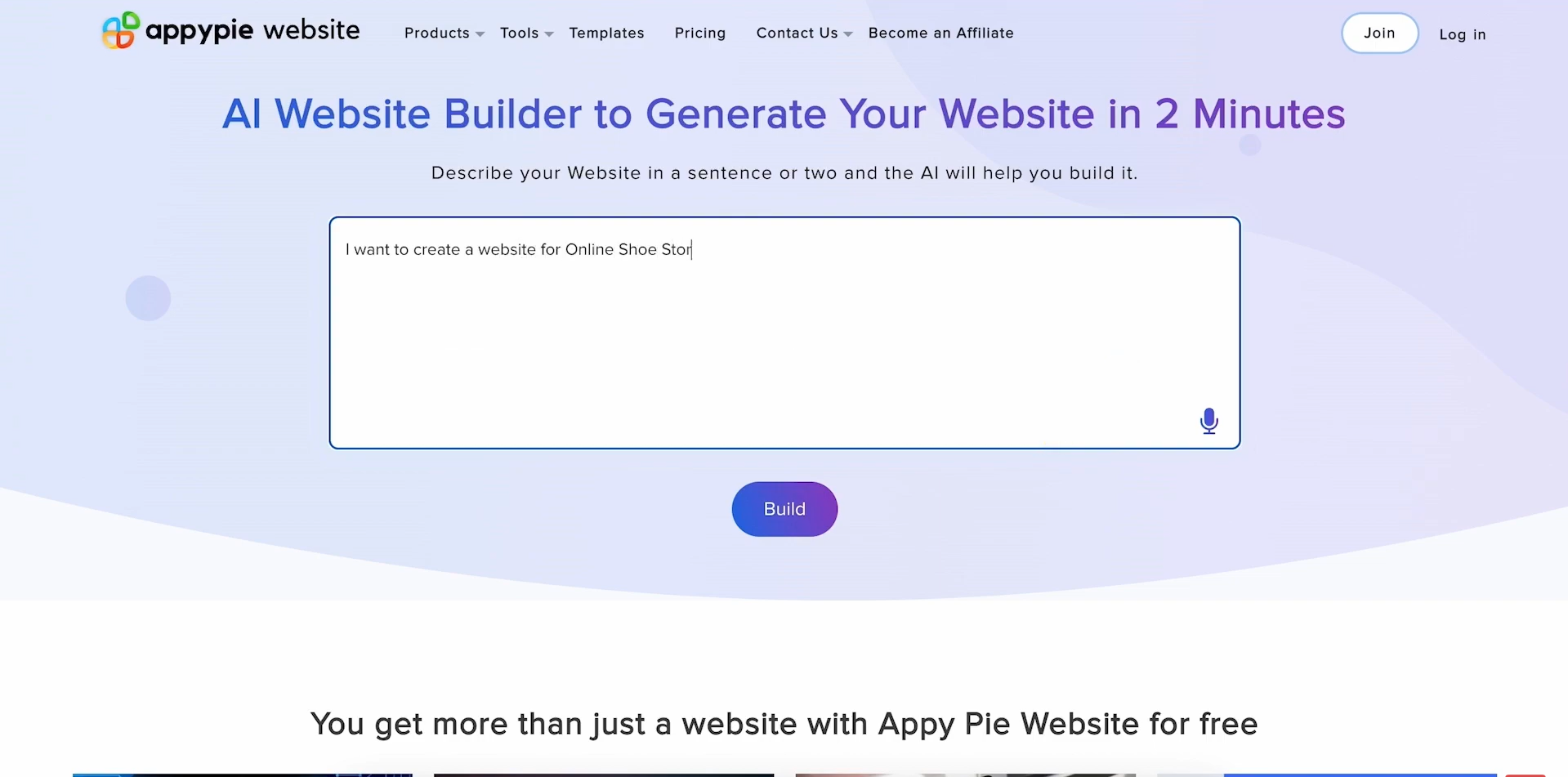
Google Sites, on the other hand, does not have any AI capabilities. This makes Appy Pie a clear winner in this category.
User Management
User ManagementAssesses the platforms’ capabilities in managing user roles, permissions, and accessibility.Score Components:
- Role Customization (40%): Flexibility in creating and defining user roles and
permissions. - Ease of Management (30%): User interface and tools for managing users.
- Access Control (20%): Effectiveness of access control measures for different user
levels. - Scalability (10%): Ability to manage a growing number of users efficiently.
 7.8
7.8
 7.3
7.3
🏆 Winner: Google Sites
. Both Google Sites and Appy Pie offer different user roles and access levels, but Google Sites provides more flexibility.
- Google Sites allows multiple users to collaborate with different roles, including Owners, who have full control, and Editors, who can modify content but not site settings. There’s no strict limit on the number of users who can edit a site, allowing flexibility in management and development. Viewers can only see the site, with no editing permissions. This structure supports collaborative website building with varied levels of access and control for different users.
- The Appy Pie website builder offers different user access levels based on the plan chosen. For the Free Plan, one user has full editing privileges. Paid plans include the Starter Plan (3 users), Hobby Plan (5 users), Professional Plan (10 users), and Enterprise Plan (unlimited users). Each plan designates an Admin with full access and additional Editors with varying editing rights. Additionally, paid plans allow for customization of roles, enabling tasks such as content editing or design adjustments.
Unfortunately, there are no user roles and access levels tables available for both platforms.
Additional Features

|

|
|
|---|---|---|
|
SSL Certificate |
|
|
|
Custom Domain |
|
|
|
Free Custom Domain Included |
|
|
|
International Domains |
|
|
|
Mobile Responsive |
|
|
|
Page Speed |
|
|
|
Website Builder Mobile App |
|
|
|
Convert a Website To An App |
|
|
|
Website Analytics |
|
|
|
Multilingual Sites |
|
|
|
Multiple Users |
|
|
User Feedback
Users consistently praise Google Workspace, particularly Google Sites, for its seamless integration, ease of use, and collaborative features, making it a go-to solution for various professional and educational needs. The platform’s simplicity and user-friendly interface are lauded, enabling effortless website creation and sharing of information within organizations. While some users desire more customization options and additional features, overall, Google Workspace remains highly valued for its versatility and streamlined workflow facilitation.
Appy Pie garners positive feedback for its user-friendly interface and excellent customer support, offering low-code solutions for app and website building without requiring coding experience. Users appreciate its ease of use, extensive features, and ability to create apps and websites quickly. While some express a desire for more customization options and templates, overall, Appy Pie serves as a valuable tool for businesses and individuals seeking to create apps and websites efficiently, solving the problem of complex coding requirements and providing a platform for easy communication and engagement with users.
The making of this blog
We followed a clear, step-by-step process to write and research this article.
FAQ
Which platform is better for creating an online store, Google Sites or Appy Pie?
Can I use both Google Sites and Appy Pie for creating informational and business websites?
How do Google Sites and Appy Pie compare in terms of ease of use?
Which platform offers better customer support, Google Sites or Appy Pie?
Are there any AI capabilities available in Google Sites or Appy Pie?
Which platform is more secure, Google Sites or Appy Pie?
Can I manage multiple users on both Google Sites and Appy Pie?
Do Google Sites and Appy Pie offer mobile responsiveness?










